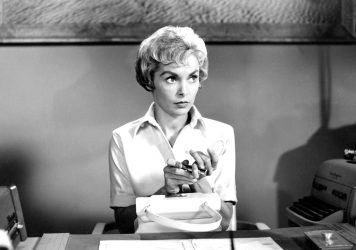
“What is the most resilient parasite? Bacteria? A virus? An intestinal worm? An idea. Resilient… highly contagious. Once an idea has taken hold of the brain it’s almost impossible to eradicate.” These early lines by dream extractor Dominick Cobb (Leonardo DiCaprio) establish the eponymous concept behind Christopher Nolan’s mind-bending sci-fi Inception, where dream-share technology is used to sow ideas in the mind of anyone.
These implanted ideas are parasitic and can come to define a person’s outlook, future choices, even their personality. Although the main plot concerns corporate espionage carried out through dreams, the emotional core of the film is Cobb’s failure to cope with the loss of his wife, Mal (Marion Cotillard). However, our empathy for him is compromised when it becomes clear that, through inception, Cobb was the cause of Mal’s death.
Moral absolutism is hardly at the forefront of Nolan’s filmography, and Inception crosses straight into morally dubious territory – the titular act itself is a form of gaslighting, designed to significantly alter someone’s mental state without their knowing.
Despite being set up as a classic femme fatale, Mal is a profoundly tragic figure without agency. She was appropriately nicknamed ‘The Shade’ in promotional material, which perfectly encapsulates her role in the film. The Mal we see is not the real Mal, but a violent and malignant manifestation of Cobb’s guilt, a shadow formed of memories and regrets. She is disturbed and quick to anger, sabotaging his work and attacking his team in their dreams.
Yet from the perspective of Arthur (Joseph Gordon-Levitt), one of the few characters besides Cobb who knew Mal, “she was lovely”. This begs the question of whether Cobb imagines Mal to be furious and vengeful to make himself kinder by comparison, or if Mal was as toxic as he is.
“Cobb fails to consider how dangerous it is to fundamentally alter Mal’s sense of reality and deprive her of her agency.”
In life, their bond appeared mutually obsessive: after all, they chose to spend the equivalent of 50 years in a dream world with just each other for company. They regularly quote a riddle about boarding a train with no idea of its destination, deeming it unimportant as long as “they’ll be together”. The problem is that their codependency is much like a dream state: momentarily appealing but ultimately an escape from reality.
They cannot properly function in the real world, at least not in a happy or healthy way, as we see with the progress of their dream experiment. When Mal refuses to leave their shared fantasy, Cobb incepts and inevitably gaslights her. He justifies his actions as an attempt to bring her out of the dream world, yet fails to consider how dangerous it is to fundamentally alter her sense of reality and deprive her of her agency.
The 1938 stage play ‘Gas Light’, where the term ‘gaslighting’ originated, told the story of a husband psychologically manipulating his wife by modifying elements of their environment while pretending nothing had changed. Similarly, Inception blurs the line of reality and fantasy by using ‘totems’ to distinguish between the worlds. Cobb explicitly states that no one but the owner should interact with the totem; even weight and dimension are details only they should know. This later reveals his hypocrisy as his own totem, a spinning top, originally belonged to Mal.
When Cobb discovers Mal’s totem buried away in the recesses of her mind, he spins it and Mal’s sense of reality begins to spin out of control. Like the husband in ‘Gas Light’, he never reveals this information to her, a cruel act which causes Mal’s descent into madness and eventual suicide. After Mal’s death, he ironically depends on the totem to establish his own sense of reality. It is poetic justice that the object which tormented Mal ends up tormenting Cobb.
While Cobb grieves for Mal, it is questionable whether he earns his redemption. Despite knowing the dangers of inception, he continues to incept CEO Robert Fischer (Cillian Murphy) while endangering his team by risking falling into limbo, an unconstructed dream space from which one can never wake up. When he finally confronts his actions, it is only to absolve his guilt and move on with his life; yet the projection of Mal tearfully stating “you infected my mind” shows that the damage he inflicted can never entirely be undone.
Abusers delude themselves into believing that they are redeemable, that their actions can exist without consequence. The final scene of domestic bliss may only be a projection of Cobb’s desire for a future where he is forgiven, a fantasy he has constructed to escape the awful truth of his actions. The spinning top begins to lose its balance because, deep down, Cobb knows the illusion is not built to last.
Published 25 Aug 2020

By Tom Williams
This moody monochrome thriller from 1998 is an immaculately crafted tale of crime and obsession.

A stoppable force meets an infinitely movable object in Christopher Nolan’s continuum-shattering sci-fi thriller.

By Sally Nolan
The patronising psychiatrist’s explanation strips away the mystery and fear that Hitchcock so impressively builds.